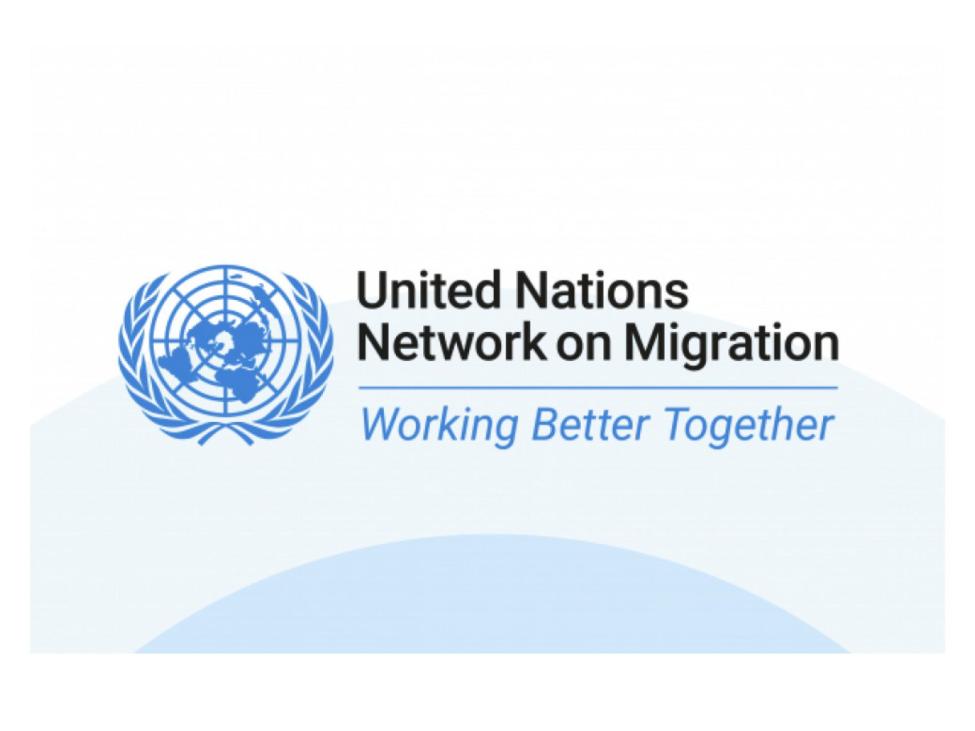-
Kik vagyunk
RólunkA Nemzetközi Migrációs Szervezet (IOM) része az ENSZ rendszerének mint 1951 óta a vezető kormányközi szervezet, amely 175 tagállammal és több mint 100 országban való jelenléttel segíti elő azt, hogy a migráció mindenki számára előnyös legyen. Az IOM Magyarországon 1992 óta van jelen.
Rólunk
Rólunk
IOM a világban
IOM a világban
-
Munkánk
MunkánkAz IOM, mint az emberséges és rendezett migrációt előmozdító vezető kormányközi szervezet kulcsszerepet tölt be a 2030-as célkitűzések megvalósításának támogatásában a humanitárius segítségnyújtást és a fenntartható fejlődést egyaránt összekapcsoló különböző területeken keresztül. Magyarországon az IOM számos áttelepítési, támogatási és életvédelmi feladat ellátásával segíti a migráns személyeket.
Mit csinálunk
Mit csinálunk
Átfogó (globális)
Átfogó (globális)
- Adat és források
- Cselekedj!
- 2030 Agenda
Az ENSZ főtitkára jelentést tesz közzé a biztonságos, rendezett és szabályos migrációról szóló globális egyezmény végrehajtásáról
New York – Today, in a high-level briefing hosted by the President of the General Assembly, the Secretary-General launched his report on the implementation of the Global Compact for Safe, Orderly and Regular Migration (GCM).
This report comes at a crucial time when governments are preparing for the first quadrennial International Migration Review Forum (IMRF) on 17-20 May 2022 to review the progress made and challenges yet to be overcome in implementing this global framework on migration governance.
“The Forum must be a space to discuss common challenges, rectify failures, and explore avenues to strengthen partnerships between states and stakeholders,” said Abdullah Shahid, President of the 76th session of the UN General Assembly. “We must consider the Report’s recommendations to strengthen our actions as we look beyond the Forum,” he added.
The report highlights areas of particular progress, including solutions that facilitate the recognition and development of skills, qualifications and competencies; evidence on the evolving characteristics of smuggling and the incidence of trafficking; moves towards ending child immigration detention and investing in non-custodial, human rights-based alternatives; and the importance of effective consular protection and services for migrants, including those in irregular status.
The document also provides 14 recommendations focusing on where more needs to be done, linked to all 23 objectives of the GCM, and falling under four priority areas:
- Promoting inclusive societies and including migrants in COVID-19 response and recovery;
- Promoting safe and regular migration;
- Preventing loss of life and other tragedies during migration; and,
- Building capacity.
States and stakeholders, and the United Nations system, are strongly encouraged to pledge concrete actions for the implementation of the Compact ahead of the IMRF.
“This will be critical in ensuring tangible progress in moving forward with this cooperative framework for the benefit of all,” said United Nations Secretary-General António Guterres in his report.
It will also be an opportunity to build momentum ahead of the IMRF to further international cooperation and inspire pledges based on the Secretary General´s recommendations. “Let us set our sights high for this first IMRF and strengthen our commitment to make migration work for all,” said Director General of the International Organization for Migration and Coordinator of the UN Network on Migration António Vitorino.
Adopted in 2018, the Global Compact for Migration constitutes a robust framework for international cooperation on migration, able to withstand global shocks such as those presented by the COVID-19 pandemic, and providing a common lexicon grounded in international law, by which to discuss issues of migration governance.
Click here to access the report (available in English, Arabic, Chinese, French, Russian and Spanish.)
***
For more information, please contact Florence Kim at the UN Network on Migration secretariat: fkim@iom.int; +41 79 748 03 95.
